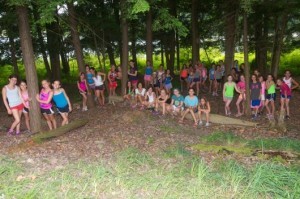 Levanta tu mano si esto te ha sucedido este año—de la misma manera en que sucede cada año. Justo cuando pensabas que finalmente—FINALMENTE—habías escuchado la última de las historias del campamento, llegó. Tal vez fue el video del campamento, el boletín del campamento…hasta una invitación a una reunión del campamento. Lo que fuese, se trata del campamento, recordándote que nos encontramos a mitad de camino a otro verano y ahora estás escuchando esa historia de esquí acuático o de béisbol por, ¡oh!, alrededor de la 27º vez. Y levanta tu mano si alguna vez te encontraste preguntándote cómo unas pocas semanas en el verano pueden tener tal impacto profundo en tus niños que todavía se encuentran hablando de ello en pleno invierno como si fuera un par de semanas atrás. Pero no es que no te importe. Estás muy feliz de haber hecho esa inversión en el campamento de verano y de que haya sido muy buena. Pero todavía te haces algunas preguntas. Bueno, aquí consideraremos algunas cuestiones.
Levanta tu mano si esto te ha sucedido este año—de la misma manera en que sucede cada año. Justo cuando pensabas que finalmente—FINALMENTE—habías escuchado la última de las historias del campamento, llegó. Tal vez fue el video del campamento, el boletín del campamento…hasta una invitación a una reunión del campamento. Lo que fuese, se trata del campamento, recordándote que nos encontramos a mitad de camino a otro verano y ahora estás escuchando esa historia de esquí acuático o de béisbol por, ¡oh!, alrededor de la 27º vez. Y levanta tu mano si alguna vez te encontraste preguntándote cómo unas pocas semanas en el verano pueden tener tal impacto profundo en tus niños que todavía se encuentran hablando de ello en pleno invierno como si fuera un par de semanas atrás. Pero no es que no te importe. Estás muy feliz de haber hecho esa inversión en el campamento de verano y de que haya sido muy buena. Pero todavía te haces algunas preguntas. Bueno, aquí consideraremos algunas cuestiones.
1.) En el campamento de verano, los campistas van a pasar todo el día, todos los días con sus amigos. Antes de que argumentes de que ellos hacen
lo mismo en la escuela, considera lo siguiente: en el campamento de verano, los campistas no sólo pasan todo el día con sus amigos, sino que también tienen la oportunidad de interactuar con ellos. Si lo piensas, la interacción con amigos en la escuela está limitada principalmente a conversaciones en el corredor entre el horario de clases, recesos (para niños más chicos) y durante el almuerzo. Seguro, también pueden apropiarse de unos pocos intercambios durante la clase con el riesgo de castigo pero en la mayor parte, hablando mientras los maestro presentan las lecciones (lo cual forman la mayor parte del día escolar) no se recomienda generalmente. En contraste, el campamento de verano es más como una fiesta de pijamas que dura varias semanas y todos los días los campistas pueden hacer algo especial con sus amigos. ¡Siempre algo se marca en el divertómetro!
2.) los niños pueden ser ellos mismos en el campamento. No se trata de que en el campamento de verano no haya reglas para seguir. Pero las reglas tienden a ser aquellas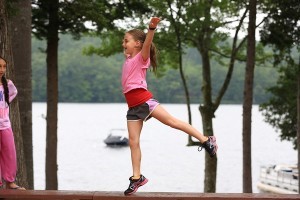 que promueven el sentirse a gusto. Ellas son bastante más relajadas que aquellas impuestas en la escuela y aún aquellas que pertenecen a conductas apropiadas en situaciones sociales son de algún modo laxas en comparación con aquellas que ellos tienen que seguir los otros diez meses del año. En la mayoría de los restoranes, sus patrones, probablemente no les divierta mucho la idea de que los niños comiencen a cantar o a dar señales de euforia en medio de la comida, por ejemplo. Sin embargo, la mayoría de los campamentos lo aleccionan.
que promueven el sentirse a gusto. Ellas son bastante más relajadas que aquellas impuestas en la escuela y aún aquellas que pertenecen a conductas apropiadas en situaciones sociales son de algún modo laxas en comparación con aquellas que ellos tienen que seguir los otros diez meses del año. En la mayoría de los restoranes, sus patrones, probablemente no les divierta mucho la idea de que los niños comiencen a cantar o a dar señales de euforia en medio de la comida, por ejemplo. Sin embargo, la mayoría de los campamentos lo aleccionan.
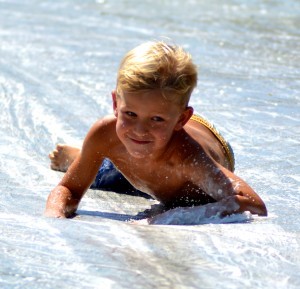 3.) A los niños les encanta ser independientes en el campamento de verano. No significa que tus niños no te amen y te adoren pero también les gusta hacer cosas por su cuenta. Los niños se sienten orgullosos cuando logran algo por su cuenta por primera vez en el campamento (con el apoyo de sus compañeros de campamento, consejeros y un anfitrión del personal de otro campamento también, por supuesto… pero en sus mentes, fueron ellos y eso está bien). Les da un sentido de orgullo saber que no necesitan depender de Mamá y Papá para hacer todo.
3.) A los niños les encanta ser independientes en el campamento de verano. No significa que tus niños no te amen y te adoren pero también les gusta hacer cosas por su cuenta. Los niños se sienten orgullosos cuando logran algo por su cuenta por primera vez en el campamento (con el apoyo de sus compañeros de campamento, consejeros y un anfitrión del personal de otro campamento también, por supuesto… pero en sus mentes, fueron ellos y eso está bien). Les da un sentido de orgullo saber que no necesitan depender de Mamá y Papá para hacer todo.
4.) El campamento es un ambiente juvenil. El campamento es un ambiente dedicado a la juventud. Aún los miembros del personal son jóvenes de corazón, si bien esto no suena como algo muy importante, piensa sobre el mundo “real” desde la perspectiva de un niño. Es básicamente un lugar donde están constantemente vigilados por adultos y donde se les recuerda todas las cosas que no pueden hacer hasta que sean adultos. En vez de eso, el campamento es un lugar donde se trata de agradar a los niños y donde constantemente se les recuerda por qué es tan dulce ser un niño.
5.) Los niños aprecian el transcurso del tiempo de manera diferente que en un campamento de verano ¡En verdad lo hacen! Cuando el año escolar comienza, de igual manera, los niños miden los “meses que faltan” como una cuenta regresiva.
Es una cuenta regresiva que se mueve muy lento en la cual los niños se consideran en el extremo posterior. Todavía hay tiempo, siempre. Cuando el campamento de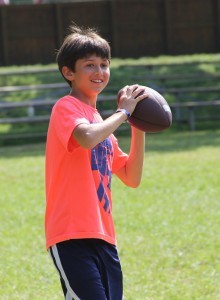 verano comienza, la cuenta regresiva también lo hace. Pero esta cuenta regresiva se mide en “semanas que ya han transcurrido”. Los niños se colocan a si mismos en la delantera de la cuenta regresiva del campamento. En otras palabras, saben que su momento en el campamento de verano es limitado. Desde el momento en que llegan, se mentalizan para hacer que cada minuto cuenten, lo cual aumenta la intensidad de la experiencia. A eso se debe el porqué aquello aparentemente mundano de “Es una cosa de campamento” o las historias “Tenías que haber estado ahí” que escuchas una y otra vez y que son tan apreciadas por tus niños. En verdad fueron experimentadas de manera tan vívida en el momento en que las vivieron, que el momento permanece en ellos. No todos los niños comparten el mismo entusiasmo sobre, digamos, su último examen de matemática, por ejemplo.
verano comienza, la cuenta regresiva también lo hace. Pero esta cuenta regresiva se mide en “semanas que ya han transcurrido”. Los niños se colocan a si mismos en la delantera de la cuenta regresiva del campamento. En otras palabras, saben que su momento en el campamento de verano es limitado. Desde el momento en que llegan, se mentalizan para hacer que cada minuto cuenten, lo cual aumenta la intensidad de la experiencia. A eso se debe el porqué aquello aparentemente mundano de “Es una cosa de campamento” o las historias “Tenías que haber estado ahí” que escuchas una y otra vez y que son tan apreciadas por tus niños. En verdad fueron experimentadas de manera tan vívida en el momento en que las vivieron, que el momento permanece en ellos. No todos los niños comparten el mismo entusiasmo sobre, digamos, su último examen de matemática, por ejemplo.
Entonces, cuando el recordatorio del próximo campo llegue a tu casilla de correo y las historias comiencen nuevamente, sólo recuerda que para los campistas, la llegada de cualquier cosa del campamento es como recibir una tarjeta postal del País del Nunca Jamás.

 570-798-9831
570-798-9831
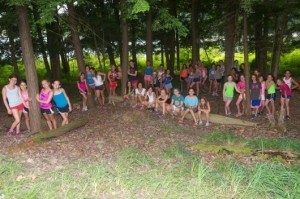
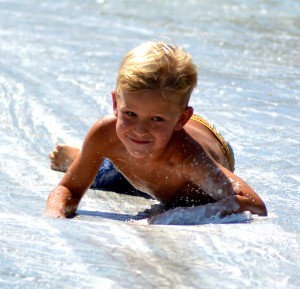
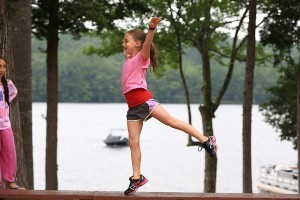
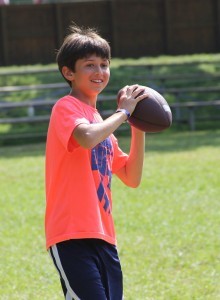
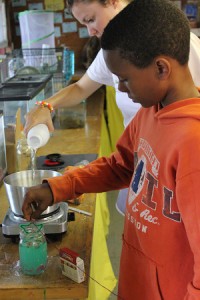
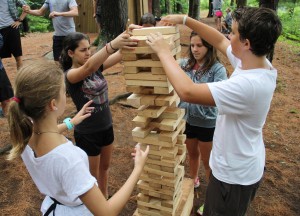


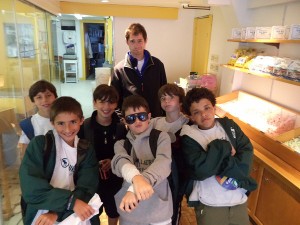
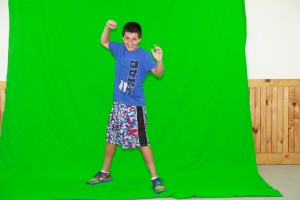
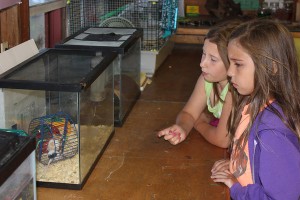
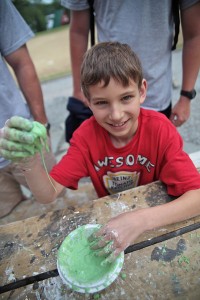
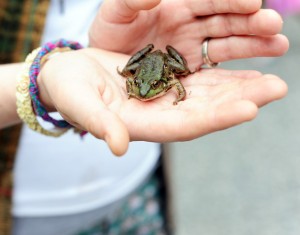
 Close your eyes and try to imagine your favorite spot on campus. Most campers are probably visualizing the Starlight waterfront. Someone who is not so familiar with camp may ask, “What’s so special about the waterfront?” Well, with so many fun, different activities to cool you off, how could you not imagine such a magical spot on campus?
Close your eyes and try to imagine your favorite spot on campus. Most campers are probably visualizing the Starlight waterfront. Someone who is not so familiar with camp may ask, “What’s so special about the waterfront?” Well, with so many fun, different activities to cool you off, how could you not imagine such a magical spot on campus?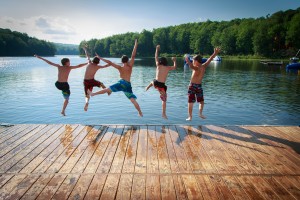
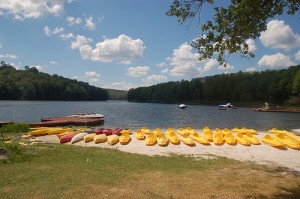


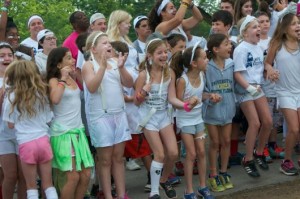
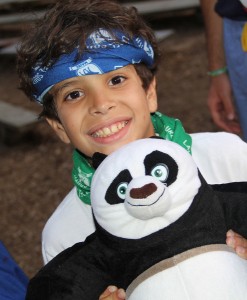
 Spirit. Speaking of spirit, it goes way beyond showing support for a team at summer camp. Camp spirit is all about demonstrating why your camp is the best camp—all day, every day. Every camper and staff member comes to camp prepared with sufficient clothing in camp colors. It is perfectly acceptable to paint your entire body camp colors in a show of spirit, and temporary tattoos with the camp logo or colors are pretty much standard at every camp activity.
Spirit. Speaking of spirit, it goes way beyond showing support for a team at summer camp. Camp spirit is all about demonstrating why your camp is the best camp—all day, every day. Every camper and staff member comes to camp prepared with sufficient clothing in camp colors. It is perfectly acceptable to paint your entire body camp colors in a show of spirit, and temporary tattoos with the camp logo or colors are pretty much standard at every camp activity.
 Chances are, they spend the majority of their time bickering over who gets to be in control of the remote, or, while traveling on your family vacation, you constantly hear the infamous “Mom, he/she won’t stop staring at me!” It’s no secret that siblings can get on each other’s nerves while spending 24/7 living under the same roof, but while at camp something about their attitudes changes.
Chances are, they spend the majority of their time bickering over who gets to be in control of the remote, or, while traveling on your family vacation, you constantly hear the infamous “Mom, he/she won’t stop staring at me!” It’s no secret that siblings can get on each other’s nerves while spending 24/7 living under the same roof, but while at camp something about their attitudes changes.